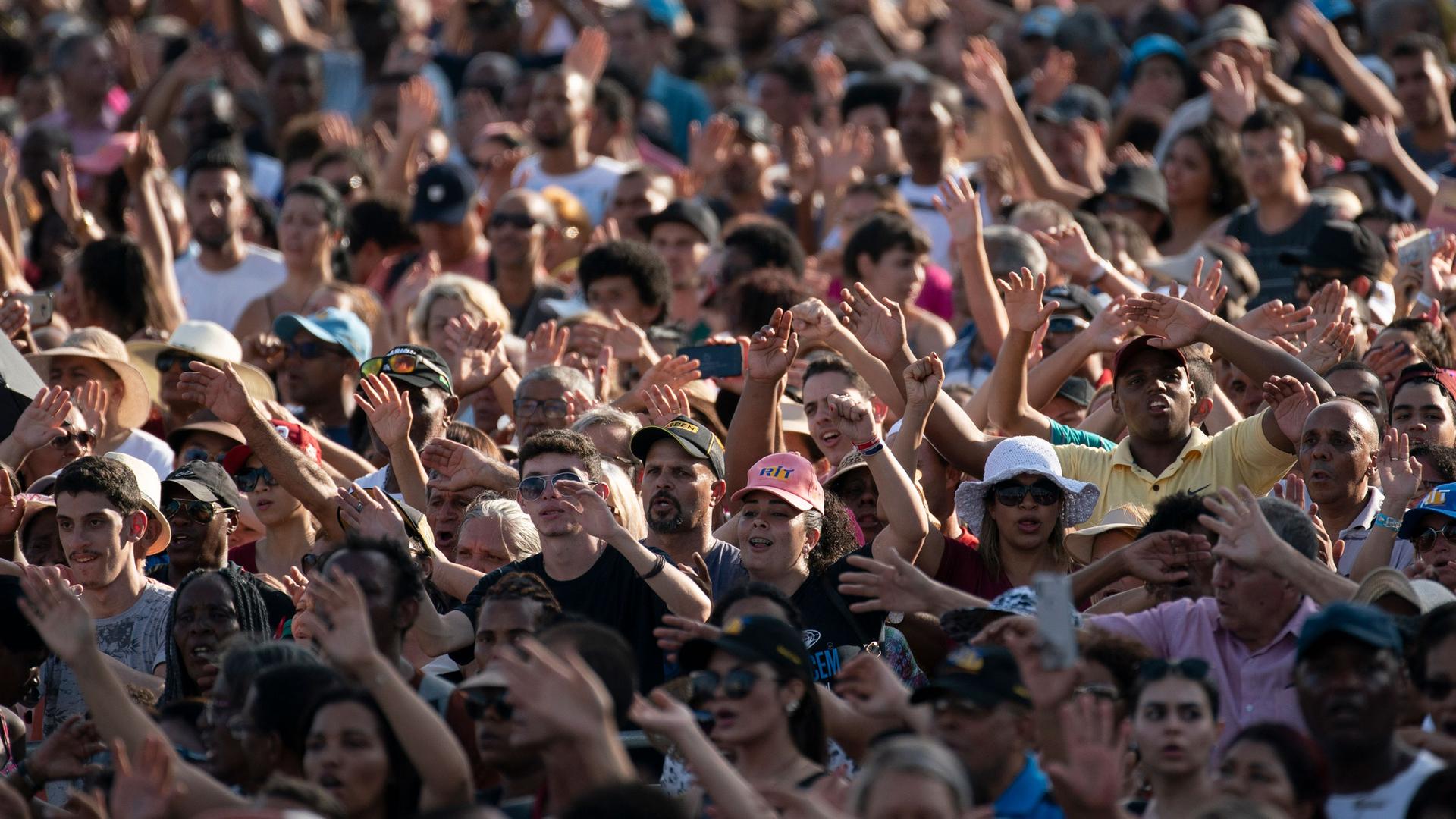In early December 2021, evangelical pastor Kenner Terra hopped on a flight from his home in the state of Espírito Santo and flew to São Paulo, where he met with dozens of progressive evangelical leaders to discuss the 2022 elections.
“We asked ourselves what are the principal problems in Brazil right now that a progressive evangelical alliance could help resolve.”
“We asked ourselves what are the principal problems in Brazil right now that a progressive evangelical alliance could help resolve,” he said.
The group gathered because they noticed that President Jair Bolsonaro’s policies are creating problematic issues, he said, including rollbacks in social and workers’ rights, a failed response to the pandemic and a weakening of democratic institutions.
The term “progressive evangelical” may seem contradictory by nature. In Brazil, like in the United States, evangelical Christians are usually considered to be more politically conservative — taking stands against abortion and gay marriage.
Related: Evangelicals in Brazil ‘have taken power’ with latest Supreme Court justice appointee
But in Brazil, the word evangelical describes all non-Catholic Christians, who make up about a third of the country. So-called progressive evangelicals are a small segment of this population.
They are up against a conservative evangelical majority that controls the powerful media and electoral machines that helped elect Bolsonaro and evangelical political leaders.
However, a recent poll suggests support may be slipping as evangelical progressives begin to organize against Bolsonaro, and as their voices get louder.
In September, activists from the Black Evangelical Movement participated in nationwide protests against the Bolsonaro government and its handling of the pandemic.
Related: ‘Born in Blackness’: A new book centers Africa in the expansive history of slavery
“We are here today on the streets to show that being evangelical does not mean that we are Bolsonaro supporters,” said one member in a video shared over social media.
“We will be in the streets next year,” said Vanessa Barboza, one of the young leaders of the movement, which has local chapters in cities around the country. “We have political connections and we’ll be organizing people directly against Bolsonaro.”
Her story is similar to many others.
She said she joined a Pentacostal church in her youth. But over time, she found there was little space for deeper discussions there about feminism or racial discrimination in the church.
She helped to found the first feminist evangelical group in the country and the Network of Black Women Evangelicals in 2018. They hold frequent online forums, like this one live-streamed over YouTube in October.
Next year, Barboza said they are going to work to fight political violence against Black female leaders and political candidates, which has been rising since the lead-up to Bolsonaro’s election in 2018.
There are dozens of progressive evangelical groups like hers around the country.
On a Sunday morning in late November, members of the Evangelical Front for the Rule of Law inaugurated a new space in Brasília, by holding mass. In a video shared online, a pastor in jeans and a black T-shirt preaches to a small audience, seated in white plastic chairs, about helping one another. Behind him is a large mural of lush green leaves and ivy. A five-person band plays softly in the background.
Related: ‘Without our territory, we are nothing’: Violence against Indigenous peoples spikes in Brazil
The group, with nearly 30,000 followers on Facebook and local chapters around the country, is one of the more prominent progressive evangelical organizations in Brazil.
“It’s not a battle against Bolsonaro. It’s a battle against Bolsonarism. The figure of Bolsonaro is weakening. But the future of his movement is strong.”
“Next year will be a very difficult year,” founding member Valeria do Nascimento Oliveira said. “It’s not a battle against Bolsonaro. It’s a battle against Bolsonarism. The figure of Bolsonaro is weakening. But the future of his movement is strong.”
She said they, too, will be in the streets: Pamphleting, door knocking and holding religious gatherings.
It may not be enough to counter the power of the more conservative evangelical churches. But these groups are flexing their muscles and showing that evangelicals are more politically diverse than they might appear.
And that diversity is set to play an important role as the candidates battle in the lead-up to next year’s election.
“It is possible for progressive evangelicals to organize … to develop a new project for society that’s more just in its relationships, and with a gospel that’s more about freedom and mercy.”
“It is possible for progressive evangelicals to organize,” said Brazilian Baptist pastor Ronilso Pacheco, who is currently studying at Union Theological Seminary. “It’s possible to organize, to develop a new project for society that’s more just in its relationships, and with a gospel that’s more about freedom and mercy.”
